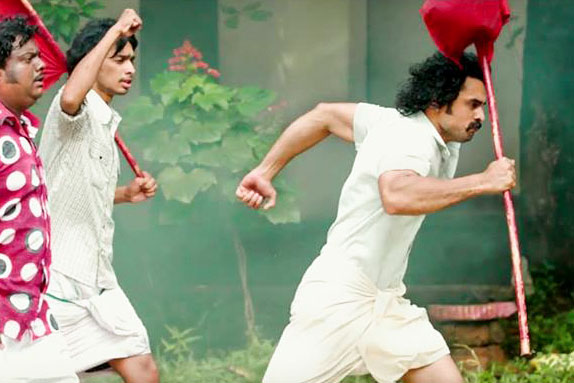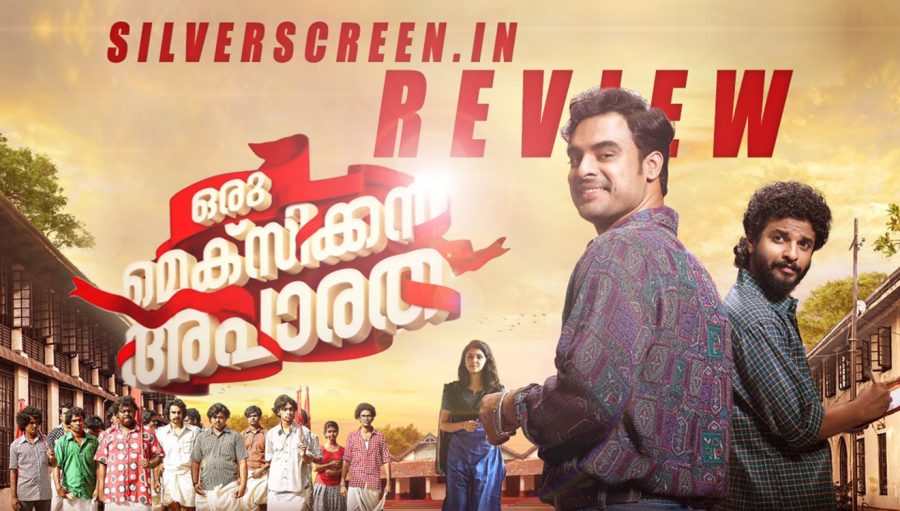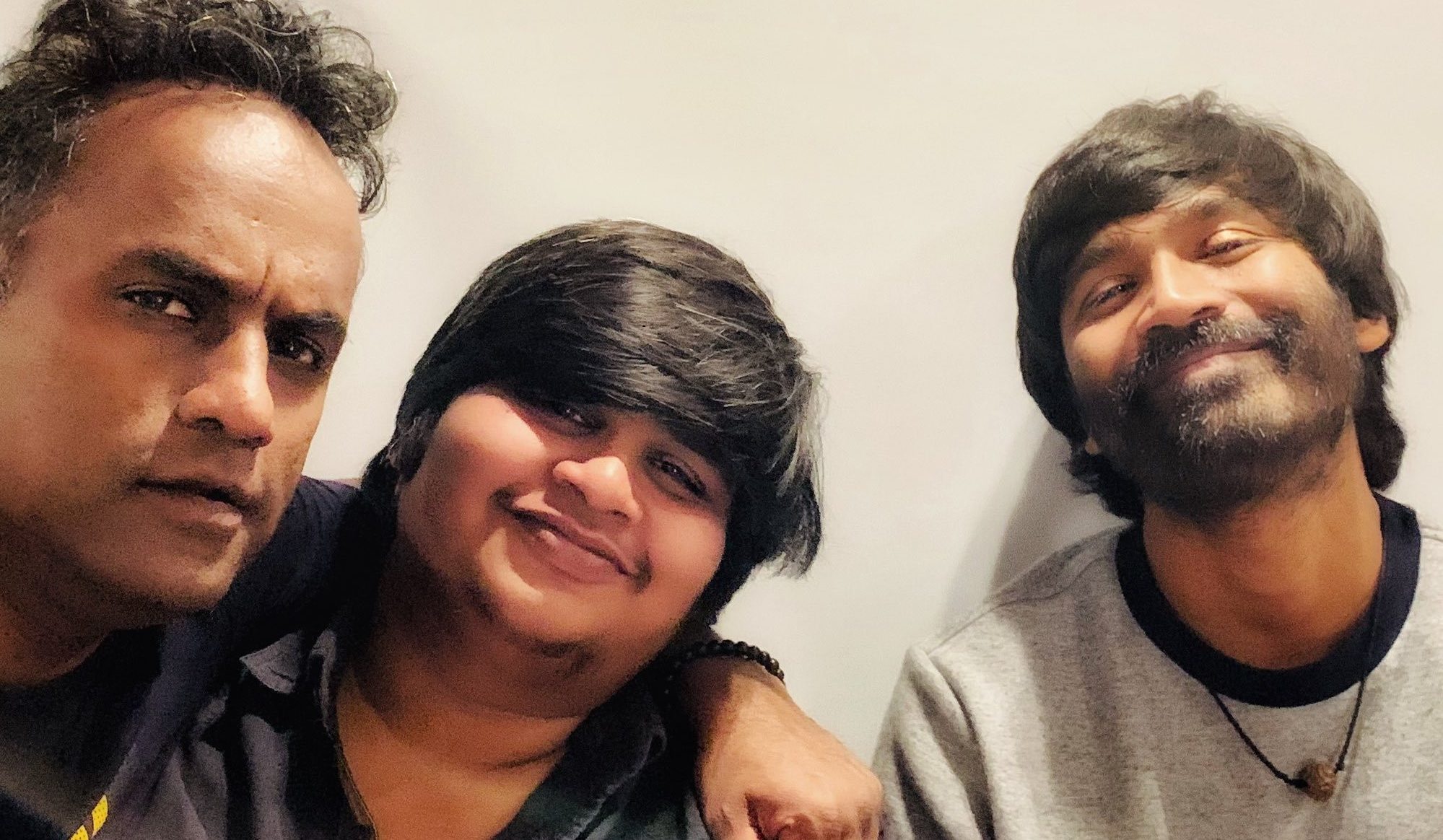Last October, when Ganesh Raj’s teenage-drama Aanandam hit the screens, a section of the audience accused it of being naive, mushy and apolitical. Four months later, Oru Mexican Apaaratha (A Mexican Vastness) directed by debut director Tom Emmatty, has released in theatres. With characters clad in red and white, holding flags of political outfits, with their fist up in the air, the film might look like an anti thesis of Aanandam. It’s set in an arts college where students from middle to lower-middle class study. A lot of the scenes are shot realistically, in the college’s old, uncouth and chaotic men’s hostel. The lead characters talk using political jargon like revolution, oppression and communism, and drop names of Che Guevara and AKG too often. And there are clashes that recur every five minutes, always without a rational cause.
Unsurprisingly, everything falls flat. Take out the punch dialogues and skirmishes from the film, and the real content is wafer-thin.
***
The story is set in Kochi’s erstwhile Maharaja’s College which has witnessed some of the most intense political movements in the history of student politics in the state. The film opens to a flashback sequence which shows a fiery student leader of SFY (read SFI) being shot down by the police for leading a protest against the state government, with regard to the case of a missing student named Rajan. The incident happens inside the party office which is named Mexico, in memory of Che’s life-changing sojourn in the country.

Years later, a naive young man named Paul (Tovino Thomas), who has no particular interest in politics, while feeling from a gang, hides in this room. That night spent in the room changes him drastically and he, who couldn’t even open up to the girl he had a crush on a few scenes ago, transforms into dare-devil the next day. No kidding, a few scenes later, ‘Comrade Paul’ files nomination to contest election as College Chairman.
Oru Mexican Apaaratha pretends to discuss relevant issues of personal freedom and corruption, but it’s the acts of valour and machismo of half-baked characters that take the front-seat. For one, the Dalit boy who speaks out in public about how the police arrested and beat him up for refusing to cut his long hair, is used as just a prop. He, the only person in the film who has something concrete to talk about, has no actual consequence to the film’s narrative.
The film mentions the issue of self-finance colleges in one of the scenes, and doesn’t take it beyond a tasteless joke. The emphasis is on violence which the movie holds as synonymous to ‘revolution’. In tedious slow-motion shots, the camera feasts on blood gushing out of faces, and men screaming at each other for reasons as juvenile as a casually used expletive. At some points, the film becomes an unintentional spoof of itself.
***

Apart from being blissfully silly about campus politics, the film is also misogynist and racist. The whole campus looks dangerously masculine, where women walk around quietly, and sometimes steal quick admiring glances at the macho men who hog the limelight.
Anu (Gayatri Suresh) begins as an extroverted woman who doesn’t shy away from confronting her stalkers. She, however, is immediately stamped as vile. She is the latest entrant to the list of ‘Women who betray in love’, a cliche in Malayalam cinema’s recent wave of films.
It’s nothing short of pathetic that in a movie on campus politics, a field where women are as actively involved as men, the writer-director couldn’t create a better female character. There is a scene where the film’s two young communist leaders visit the modest house of their close friend, and are introduced to his four sisters. The scene is supposed to evoke laughs. The joke is on the dark complexion, obesity and unmarried status of the sisters.
Among the actors, Tovino and Neeraj Madhav stand out with effortless body language and great screen presence. However, the skin-deep, lackluster characters that they play, make their performance forgettable.
***
Recommended
If Sandesham, the 1991 movie written by Sreenivasan, was responsible for turning Poland into a witty pun that Malayalees all over the world continue to use in their daily conversation, Oru Mexican Apaaratha might have just made Mexico a butt of joke (unintentionally). Sandesham, over the years, has garnered a large number of critics, especially for taking condemnatory jibes at the state’s communist party – which has always enjoyed a singular status in Malayalam cinema. There are films like Lal Salaam and Adimakal Udamakal, which narrated the stories of selfless comrades who fought the system and dared to fail. What connects these films and Sandesham, is that they are backed by a brilliant screenplay which mirrors the society they were made in.
It is evident from the subtexts that the writers of the films had a deeper understanding of the history and politics. Meanwhile, Oru Mexican Apaaratha, like a number of new age political films, succumbs to hollow romantic ideas about communism. They beat around the bush enormously, without taking the slightest effort to spot the bird.
*****
The Oru Mexican Apaaratha review is a Silverscreen original article. It was not paid for or commissioned by anyone associated with the movie. Silverscreen.in and its writers do not have any commercial relationship with movies that are reviewed on the site.



